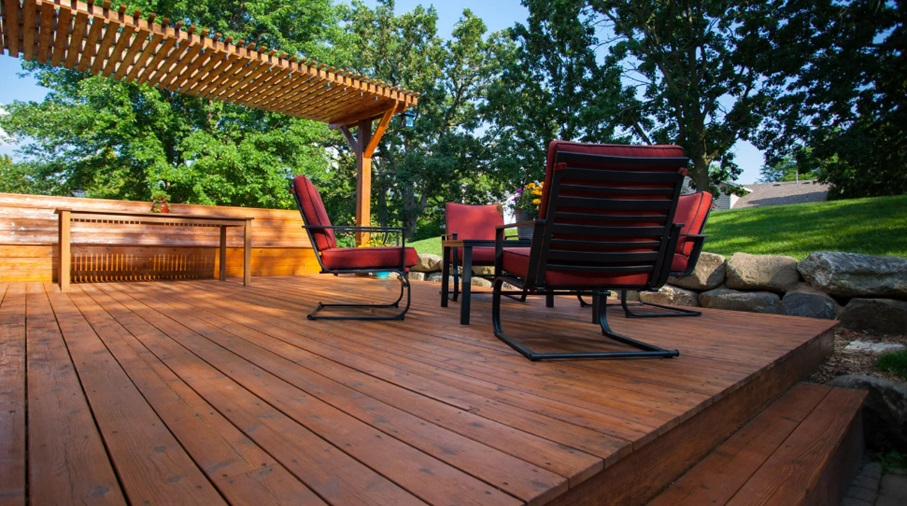The Benefits of Composite Decking Vs. Wood Decking

Choosing between composite decking and traditional wood decking is a decision homeowners frequently face. While wood decking offers a timeless, natural appearance, composite decking provides several unique benefits that can make it the better choice for many. This article will explore the benefits of composite decking vs. wood decking and why you may consider hiring a professional deck builder for your outdoor space.
Durability and Maintenance
One significant advantage of composite decking is its durability. Composite decks are resistant to rot, mold, and insect damage. Consider a professional deck builder in Atlanta so you’re assured of a long-lasting structure that maintains its appeal over the years with minimal upkeep. Wood decking also offers a natural, inviting look, making it a popular choice for many homeowners. Its durability depends heavily on the type of wood used and ongoing maintenance.
Eco-Friendly
Composite decking is an eco-friendly choice for your outdoor space. It’s made from recycled materials such as wood scraps and plastic, reducing the need for new trees to be cut down. Wood decking, on the other hand, requires cutting down trees for production, but it can be recycled at the end of its lifespan.
Aesthetics
Composite decking comes in a variety of colors and finishes, providing endless design options for your outdoor space. It can even mimic the look of wood without the maintenance requirements, making it a versatile choice for any style preference. On the other hand, wood decking offers a natural appearance that some homeowners prefer but may require regular staining or painting to maintain its aesthetic appeal.
Wide Range of Colors and Styles
Composite decking comes in a variety of colors and finishes, providing endless design options for your outdoor space. It can even mimic the look of wood without the maintenance requirements, making it a versatile choice for any style preference. On the other hand, wood decking offers a natural appearance that some homeowners prefer, making it a classic choice. However, with composite decking, you have the flexibility to choose from a wide range of colors and styles, allowing you to personalize your outdoor space to your liking.
Making the Right Choice
Ultimately, the decision between composite and wood decking depends on personal preferences and specific needs. Homeowners looking for low maintenance, durability, and eco-friendly materials may find composite decking the ideal solution. However, those who prefer a traditional appearance and are willing to commit to regular upkeep may still opt for wood.
Conclusion
Both composite and wood decking have their own unique benefits. Evaluating your priorities in terms of maintenance, cost, environmental impact, and aesthetic appeal will help you make a choice that best suits your lifestyle and outdoor living aspirations. Additionally, understanding why to hire a licensed contractor to build your deck and making a well-informed decision will ensure that your outdoor space is not only aesthetically pleasing but also durable, safe, and cost-effective. Remember to always prioritize your personal preferences and needs when it comes to choosing the right material for your dream deck. Happy building!
Frequently Asked Questions
What questions to ask a deck builder?
It is important to ask your deck builder about their experience, licenses and insurance, pricing and payment options, timeline for the project, and references from previous clients. You can also ask about their process for obtaining necessary permits and any additional services they offer, such as maintenance or repairs. You may check out this blog to learn about the critical questions to ask your deck builder.
How do you clean and maintain composite decking?
Maintaining composite decking is straightforward and involves simple cleaning routines. To keep your deck looking its best, regular cleaning with soapy water and a soft bristle brush is usually all it takes. Unlike wood decking, there’s no need for sanding, staining, or sealing.





